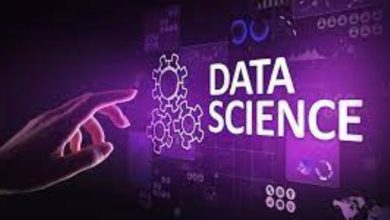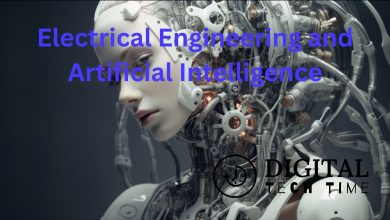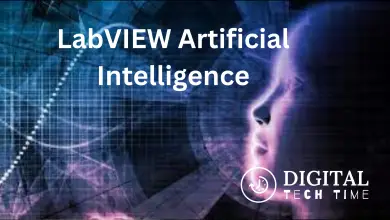Artificial Intelligence for Business: USC’s Cutting-Edge Approach

Understanding Artificial Intelligence
Artificial Intelligence (AI) is a technology that enables machines to perform tasks that would typically require human intelligence, such as recognizing speech, making decisions, and understanding natural language. AI algorithms can analyze vast amounts of data, identify patterns, and learn from experience to improve their accuracy.
In the business world, AI is used to automate routine tasks, optimize processes, and generate insights that can inform decision-making. By leveraging AI, businesses can reduce costs, increase efficiency, and gain a competitive advantage.
There are several types of AI, including:
- Machine Learning (ML): A subset of AI that uses algorithms to learn from data and improve its performance over time. ML is used in applications such as image recognition, natural language processing, and predictive analytics.
- Deep Learning (DL): A type of ML that uses neural networks to analyze data and identify patterns. DL is used in applications such as speech recognition, image classification, and autonomous vehicles.
- Natural Language Processing (NLP): A type of AI that enables machines to understand and interpret human language. NLP is used in applications such as chatbots, virtual assistants, and sentiment analysis.
AI can be applied to various industries, including healthcare, finance, retail, and manufacturing. However, there are also ethical concerns surrounding the use of AI, such as bias in algorithms and job displacement.
Overall, understanding AI is crucial for businesses looking to stay competitive in today’s digital age. By leveraging the power of AI, businesses can streamline processes, gain insights, and drive innovation.
Artificial Intelligence in Business
Artificial Intelligence (AI) is becoming increasingly important for businesses in today’s world. It is a technology that allows computers to learn from data and make decisions based on that learning. AI can be used in many different ways in business, from automating routine tasks to predicting customer behavior and optimizing supply chains.
One of the key benefits of AI in business is its ability to automate tasks that are repetitive and time-consuming. This can free up employees to focus on more strategic tasks that require human expertise. For example, AI can be used to automate data entry, customer service, and even financial analysis.
Another benefit of AI in business is its ability to analyze large amounts of data quickly and accurately. This can help businesses make better decisions based on data-driven insights. For example, AI can be used to analyze customer data to identify patterns and predict future behavior, or to optimize supply chain operations to reduce costs and improve efficiency.
However, implementing AI in business can also come with challenges. One of the biggest challenges is ensuring that the data used to train AI models is accurate and unbiased. If the data is biased, the AI model will also be biased, which can lead to inaccurate predictions and decisions.
Overall, AI has the potential to transform many aspects of business, from automating routine tasks to improving decision-making based on data-driven insights. As AI technology continues to evolve, businesses that embrace it will be better positioned to compete in the future.
Artificial Intelligence Applications in Business
Artificial Intelligence (AI) has revolutionized the way businesses operate by providing a range of applications that help streamline operations, improve customer service, and increase sales. In this section, we will explore some of the ways AI is being used in business.
AI in Marketing
AI has become an invaluable tool in marketing by helping businesses to better understand their customers and create more targeted campaigns. By analyzing customer data, AI can help businesses to identify patterns and trends that can be used to develop more effective marketing strategies.
One of the most popular applications of AI in marketing is predictive analytics. This technology uses machine learning algorithms to analyze customer data and predict future behavior. By understanding what customers are likely to do in the future, businesses can create more targeted campaigns that are more likely to be successful.
Another way AI is being used in marketing is through chatbots. Chatbots are computer programs that can simulate human conversation, and they are becoming increasingly popular in customer service. By using AI to power chatbots, businesses can provide customers with instant support and assistance, without the need for human intervention.
AI in Customer Service
AI is also being used to improve customer service by providing businesses with the ability to automate routine tasks and provide customers with more personalized experiences. One of the most popular applications of AI in customer service is through virtual assistants.
Virtual assistants are AI-powered chatbots that can provide customers with instant support and assistance. By using natural language processing, these chatbots can understand customer queries and provide relevant responses. This technology has become increasingly popular in recent years, with many businesses adopting virtual assistants to improve their customer service.
AI in Operations
AI is also being used to improve operations by providing businesses with the ability to automate routine tasks and improve efficiency. One of the most popular applications of AI in operations is through predictive maintenance.
Predictive maintenance uses machine learning algorithms to analyze data from sensors and other sources to predict when equipment is likely to fail. By identifying potential issues before they occur, businesses can minimize downtime and reduce maintenance costs.
Another way AI is being used in operations is through supply chain optimization. By using AI to analyze data from across the supply chain, businesses can identify inefficiencies and optimize their operations to reduce costs and improve efficiency.
In conclusion, AI has become an essential tool for businesses looking to improve their operations, increase sales, and provide better customer service. By using AI to automate routine tasks, analyze data, and provide personalized experiences, businesses can stay ahead of the competition and meet the evolving needs of their customers.
Challenges of Implementing AI in Business
Artificial Intelligence (AI) has become a buzzword in the business world, and many companies are looking to implement AI to improve their operations. However, there are several challenges that businesses face when implementing AI. This section will discuss some of the challenges of implementing AI in business.
Data Privacy Issues
One of the most significant challenges of implementing AI in business is data privacy. AI systems require a large amount of data to function effectively. However, this data often contains sensitive information about customers, employees, and the company itself. If this data falls into the wrong hands, it can be used for malicious purposes.
To address this challenge, businesses must ensure that they have robust data privacy policies in place. They should also invest in secure data storage and transmission methods. Additionally, they should limit access to sensitive data to only those who need it.
Technical Challenges
Implementing AI in business also presents several technical challenges. For example, AI systems require a significant amount of computing power to function effectively. This can be a challenge for small and medium-sized businesses that may not have the resources to invest in expensive hardware.
Another technical challenge is the quality of the data used to train AI systems. AI systems can only make accurate predictions if they are trained on high-quality data. However, many businesses struggle to collect and analyze the data needed to train their AI systems.
To address these challenges, businesses should consider partnering with AI service providers who can provide the necessary computing power and expertise. They should also invest in data collection and analysis tools to ensure they are collecting high-quality data.
In conclusion, implementing AI in business presents several challenges, including data privacy issues and technical challenges. However, businesses can overcome these challenges by investing in secure data storage and transmission methods, limiting access to sensitive data, partnering with AI service providers, and investing in data collection and analysis tools.
Future of AI in Business
Artificial Intelligence (AI) is transforming the way businesses operate. With the increasing amount of data generated by businesses, AI is becoming more important in decision-making processes. In the future, AI is expected to be even more pervasive in business operations, leading to increased efficiency and profitability.
Predictive Analytics
One of the most significant applications of AI in business is predictive analytics. Predictive analytics uses machine learning algorithms to analyze historical data and make predictions about future events. This technology is already being used in various industries, such as finance, healthcare, and retail. For example, predictive analytics can be used to forecast customer demand, optimize supply chain management, and prevent fraud.
AI in Decision Making
Another area where AI is expected to play a significant role in the future is decision making. AI can help businesses make more informed decisions by providing insights based on data analysis. For example, AI can analyze customer data to identify trends and patterns, which can help businesses develop more effective marketing strategies. AI can also be used to analyze financial data and provide insights into investment decisions.
However, it is important to note that AI should not replace human decision making entirely. While AI can provide valuable insights, it cannot replace human judgment and intuition. Businesses should use AI as a tool to augment human decision making, not replace it.
In conclusion, the future of AI in business is bright. As technology continues to evolve, AI is expected to become even more important in business operations. Predictive analytics and AI in decision making are just two examples of how AI can be used to improve business efficiency and profitability. However, it is important for businesses to use AI responsibly and in conjunction with human decision making.
Artificial Intelligence for Business at USC
Course Overview
The Bachelor of Science degree program in Artificial Intelligence for Business (BUAI) is a joint program offered by the Marshall School of Business and the Viterbi School of Engineering at the University of Southern California (USC). The program is designed to provide students with a solid foundation in both business and technical skills related to artificial intelligence (AI) and machine learning (ML) technologies.
The BUAI program consists of a total of 128 units, which includes 48 units of lower division courses, 40 units of upper division courses, and 40 units of general education courses. The program curriculum includes courses such as Introduction to Artificial Intelligence, Machine Learning, Data Science, Business Analytics, and more.
The program also includes hands-on experience through various projects and internships. Students will have the opportunity to work on real-world AI projects and gain practical experience in applying AI technologies to solve business problems.
Learning Outcomes
Upon completion of the BUAI program, students will have acquired the following skills and knowledge:
- A strong foundation in both business and technical skills related to AI and ML technologies
- The ability to analyze and interpret data using various AI and ML techniques
- The ability to design and implement AI solutions to solve business problems
- The ability to conceptualize new products and services that leverage AI technologies
- An understanding of the ethical and social implications of AI technologies in business contexts
The BUAI program prepares students for various career paths such as data scientists, AI engineers, business analysts, and more. Graduates of the program will be well-equipped to enter the workforce and make valuable contributions to the growing field of AI in business.
Frequently Asked Questions
What are the benefits of studying artificial intelligence in business at USC?
Studying artificial intelligence in business at USC offers a unique opportunity to gain knowledge and skills in two highly sought-after fields. Graduates of USC’s AI for Business program are prepared to become leaders in the rapidly evolving field of AI and apply their knowledge to solve complex business problems. USC’s strong reputation and industry connections also provide graduates with access to a wide range of job opportunities.
How does USC’s business program incorporate artificial intelligence?
USC’s business program incorporates artificial intelligence through a variety of courses that cover topics such as machine learning, data analytics, and natural language processing. Students are exposed to real-world applications of AI in business and learn how to leverage AI to improve business operations and decision-making.
What industries are using artificial intelligence in their business operations?
Artificial intelligence is being used in a wide range of industries, including healthcare, finance, retail, and manufacturing. AI is being applied to tasks such as fraud detection, customer service, supply chain management, and product development. As AI technology continues to advance, it is expected that more industries will adopt AI in their business operations.
What job opportunities are available for graduates with a background in artificial intelligence and business?
Graduates with a background in artificial intelligence and business are in high demand in a variety of industries. Job opportunities include roles such as data scientist, business analyst, machine learning engineer, and AI strategist. Graduates may also pursue careers in consulting, entrepreneurship, or academia.
What are some real-world examples of artificial intelligence being used in business?
Real-world examples of artificial intelligence being used in business include chatbots for customer service, predictive analytics for inventory management, and recommendation engines for personalized marketing. AI is also being used for fraud detection in financial services and for drug discovery in healthcare.
How does USC’s artificial intelligence curriculum prepare students for the workforce?
USC’s artificial intelligence curriculum is designed to provide students with a strong foundation in AI concepts and practical skills. Students learn how to apply AI to solve business problems and gain experience working with real-world datasets. USC also offers opportunities for students to engage with industry partners and gain hands-on experience through internships and projects.





